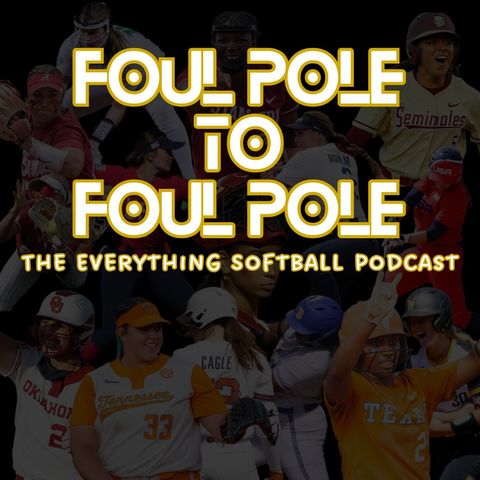FOMO, Multi-Sport Athletes, Downtime ~ Foul Pole to Foul Pole Daily 10/26/23

Download and listen anywhere
Download your favorite episodes and enjoy them, wherever you are! Sign up or log in now to access offline listening.
FOMO, Multi-Sport Athletes, Downtime ~ Foul Pole to Foul Pole Daily 10/26/23
This is an automatically generated transcript. Please note that complete accuracy is not guaranteed.
Description
Take some down time! I frequently joke that as a coach, I spend most of my time telling athletes NOT to train. One of the most common reasons that we...
show moreMulti-Sport Athletes Instead of committing to one sport, multisport athletes participate in a range of activities. Being a multisport athlete has many advantages — and some of them might surprise you. Experience long-term success. Consistent performers with fewer injuries, multi-sport athletes actually tend to experience longer-term success over their one-sport peers. They also have a much higher chance of being active adults. Limit overuse injuries. Playing multiple sports gives athletes time to heal and develop different muscle groups, tendons and ligaments. With the rise in overuse injuries in youth sports, this is an important point to consider. A recent American Orthopaedic Society for Sports Medicine study also pointed out that sports specialization could lead to more lower extremity injuries. ess pressure, less burnout. Burnout is a real problem for athletes who specialize too early. After all the practices, skill development and games growing up, they get sick of their sport by the time college comes around. Multisport athletes are more likely to retain their love of the game. Accumulate cross-sport skills. Multisport athletes gain different kinds of skills that they can apply from one sport to the next. This enhances hand-eye coordination, balance, endurance, explosion, communication and athletic agility. Who wouldn’t want the speed of a sprinter with the hand-eye coordination of a baseball player on their team?
FOMO!? Social media cranks up the pressure when it comes to the fear of missing out. It seems everyone is posting pictures their kid's team wearing a first-place medal. I don't see many posts about kids getting last place in a tournament, but the kids got better and had fun. Society has made it all about winning. The pressure is cranked up for these kids for the rest of their career and there is pressure on the parents to dedicate even more time and resources for their kids to be the "best." If they don't win every event, are they a failure? And don't get me started about rankings. I recently had a conversation with a kid I know who told me his 10U team was playing the No. 2 team in the state this weekend. I could not help but laugh. Who is ranking 10U teams? Who is looking this up and then telling their 10-year-old this information? The kids aren't ranking teams, so it must be some obsessed parents or coaches who are in charge & and people actually check the rankings like they really mean something! I don't know many young children who read the newspaper, and Facebook or Twitter don't allow kids under 13 to have an account. So that makes this much more disturbing, as all of this seems to be more for the parents egos rather than the kids. We need to get a grip as a society when it comes to youth sports. Can't we just post "loved watching Sara and her teammates play the game they love today" and not add pressure to kids that are out there to have fun? Let's attach our kids' identities and self-esteem to our values and not youth sport achievement.
Information
| Author | Tyler Black |
| Organization | Tyler Black |
| Website | - |
| Tags |
Copyright 2024 - Spreaker Inc. an iHeartMedia Company

Comments